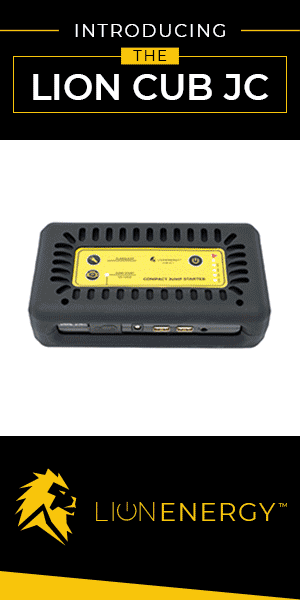Introduction
Solar energy solutions for small businesses are becoming increasingly popular as more entrepreneurs recognize the benefits of harnessing the power of the sun. This article will explore various aspects of solar energy, including what it is, the different types of solar energy solutions available, their advantages, potential cost savings, and how small businesses can implement these solutions effectively.
Solar energy is the energy derived from the sun’s rays. It can be converted into electricity or heat, making it a versatile resource for various applications. For small businesses, utilizing solar energy can lead to significant cost reductions, sustainability benefits, and a competitive edge in their market.
Types of Solar Energy Solutions
Solar panel installation
One of the primary solar energy solutions for small businesses is solar panel installation. Solar panels, also known as photovoltaic (PV) systems, convert sunlight directly into electricity. This electricity can be used to power the business’s operations, reducing reliance on the grid and lowering energy bills. The installation of solar panels is a long-term investment that can pay off substantially over time.
Solar thermal systems
Another option is solar thermal systems. These systems use sunlight to produce heat instead of electricity. Solar thermal solutions can be particularly useful for businesses that require hot water, such as restaurants, laundromats, or manufacturing facilities. By using solar thermal energy, these businesses can decrease their energy costs and improve their overall efficiency.
Solar water heating systems
Small businesses can also consider solar water heating systems. These systems typically consist of solar collectors and a storage tank. They capture sunlight to heat water for various uses, such as heating spaces or providing hot water for employees and customers. Solar water heating is an effective way to reduce energy expenses while promoting sustainability.
Benefits of Solar Energy for Small Businesses
Community solar programs
In addition to solar panels and thermal systems, small businesses can explore community solar programs. Community solar allows multiple businesses or homeowners to share the benefits of a larger solar installation. This option is especially beneficial for businesses that may not have suitable roof space for solar panel installation or those that rent their facilities. By participating in a community solar program, businesses can receive credits on their energy bills based on their share of the solar energy produced.
Cost Savings
One of the significant advantages of solar energy solutions for small businesses is the potential for cost savings. By generating their electricity, businesses can reduce or even eliminate their monthly energy bills. Additionally, many governments offer tax incentives, rebates, and grants for businesses that invest in solar energy. These financial incentives can significantly lower the initial investment required for solar installations.
Sustainability and environmental impact
Furthermore, solar energy solutions can enhance a business’s reputation. Today, consumers are increasingly conscious of sustainability and environmental impact. By adopting solar energy, small businesses can market themselves as eco-friendly, attracting customers who prioritize sustainability. This can lead to increased brand loyalty and a competitive advantage in the marketplace.
Energy independence
Implementing solar energy solutions also contributes to energy independence. By reducing reliance on traditional energy sources, small businesses can protect themselves from fluctuating energy prices. This stability can help in budgeting and forecasting, allowing businesses to allocate resources more effectively.

Steps to Implement Solar Energy in Your Business
Assessment of their energy needs
When considering solar energy solutions, small businesses should conduct a thorough assessment of their energy needs. This involves analyzing monthly energy consumption, peak usage times, and potential areas for energy efficiency improvements. By understanding their energy profile, businesses can make informed decisions about the type of solar energy solution that best fits their needs.
Consultation with energy provider
After assessing energy needs, the next step is to evaluate the available solar options. Consulting with a qualified solar energy provider can help businesses understand the technical aspects of solar installations, including system sizes, costs, and installation timelines. A reputable provider will also guide businesses through the process of applying for financial incentives and permits.
Installation process
The installation process for solar energy solutions typically involves several steps. First, a site assessment is conducted to determine the best locations for solar panels or thermal systems. Next, the solar provider designs a custom system tailored to the business’s energy needs. Once the design is finalized and permits are obtained, the installation can take place, usually within a few days to weeks, depending on the complexity of the system.
Maintenance
After installation, ongoing maintenance is essential to ensure the solar energy system operates efficiently. Regular inspections, cleaning, and monitoring of the systems can help identify any issues early and keep them running at optimal performance. Many solar providers offer maintenance packages, so businesses can choose a plan that suits their needs.
Secure Financing
Another consideration for small businesses is the financing options available for solar energy solutions. Many businesses may not have the upfront capital to invest in solar installations. Fortunately, there are various financing alternatives, such as solar leases, power purchase agreements (PPAs), and loans. These options allow businesses to access solar energy without significant initial costs, allowing them to pay for the system over time while still enjoying the benefits of reduced energy bills.

Conclusion
Solar energy solutions for small businesses present a powerful opportunity to reduce costs, enhance sustainability, and improve market competitiveness. From solar panel installation to community solar programs, there are various options available to fit the unique needs of each business.
By investing in solar energy, small businesses can take control of their energy expenses, foster a positive brand image, and contribute to a more sustainable future. As technology advances and costs continue to decrease, now is an ideal time for small businesses to explore the potential of solar energy solutions. Embracing solar energy not only benefits individual businesses but also supports broader environmental goals, making it a win-win for all.
Disclosure: As an Amazon Associate, I earn from qualifying purchases.


